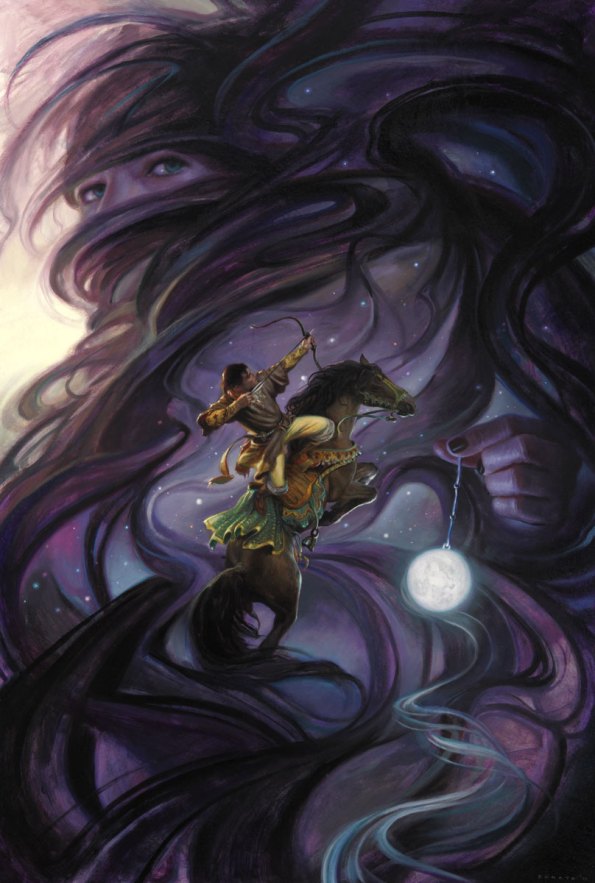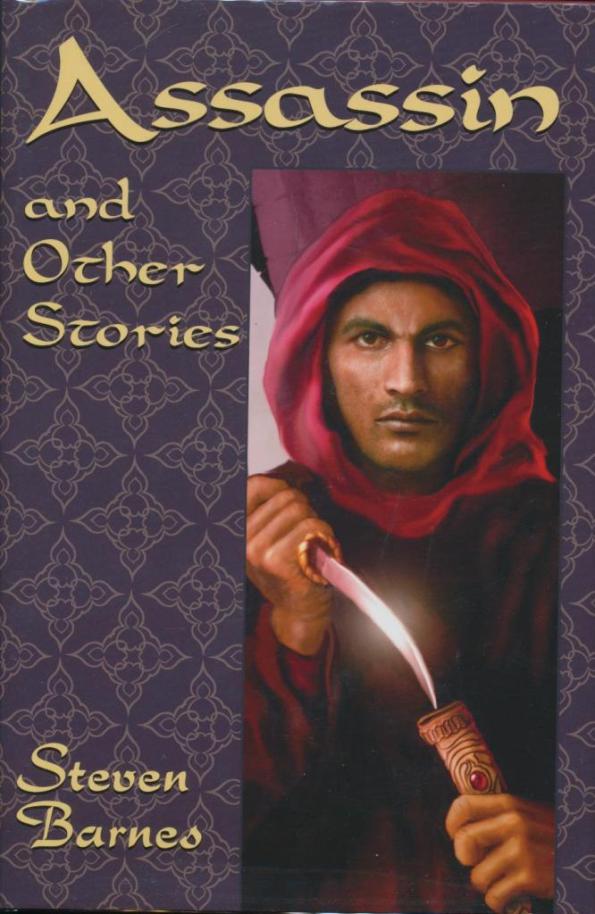Archive
Range of Ghosts by Elizabeth Bear
Modern authors are always under pressure to come up with the next big thing. Back in the Golden Age of pulps, it was easier. Editors would send out messages to all the writers on their lists demanding twenty short stories by the end of the month, and “some of them damn well better be good!” In this scatter gun approach to publishing, there was an incredible volume of pure crud — see Sturgeon’s Law — but equally a small percentage of wonderfully inventive fiction. All you had to do as a reader was filter out the rubbish to get to the good stuff. Today we’ve got the reverse problem. Instead of there being several hundred magazine and publishing houses churning out books by the thousands, there are only a few. With tens of thousands of wanna-be authors and slush piles growing ever taller, this puts terrible pressure on editors to pick only the good stuff. To get noticed and become one of the few people published today, authors need a mixture of craft and creativity. In terms of plotting, there’s very little that hasn’t already been done to death. So the skill of an author is to take an idea and dress it up in a slightly different way so we won’t notice it’s not very original.
I start in this way because, in these days of mashups with Abraham Lincoln Vampire Hunter just about to hit the big screen, Range of Ghosts by Elizabeth Bear (TOR, 2012) has managed to come up with something rather unusual. Most fantasy stories fall into very predictable formats as the fight promoters match up the Hero with the Dark Lord in the best of three falls. Magic will be allowed but not necessarily gouging or cowardly blows. There may be elves or other “folk” who take sides in the good vs. evil contest, a wiseacre will advise the Hero who often has to come out of his/her shell and discover the strength within before being able to vanquish the forces of evil, there should be a quest, and there will be a love interest which may help or hinder the Hero at the whim of the author. So, to provide variety, Elizabeth Bear has hit on the idea of Genghis Khan vs. Aladdin, i.e. of conflating the excitement of horse-born armies thundering across the Steppes with the tropes of One Thousand and One Nights. This is not entirely unfair because, once the Mongol Hordes got going, they occupied a goodly chunk of Central Asia and many of the myths and legends that ended up in the Arabian Nights originated from that region.
We start with the battle for the city of Qarash between claimants to the throne of the Khagan. Quori Buqa’s army smashes the defensive forces led by Qulan and levels the city. Timur is one of the few left alive. As the Khagan’s grandson, he’s potentially in line for succession to the throne, but that’s not on his mind as he slowly moves away from the military disaster. The practicalities of survival dominate. He’s adopted by a small kin group and, after a short courtship, falls into a relationship with Edene. What he does not know is that Quori Buqa is being assisted by Al-Sepehr, a powerful wizard (when he communicates with Quori Buqa, he uses the name Ala-Din). Having used the human armies to generate death on an industrial scale, our wizard can raise them as an army of ghosts as did his forebear Sepehr al-Racid ibn Sepehr. This puts the wizard in a potentially dominant position, but the actual process is very tiring. Hence, there’s still a need for human agents. To keep options open, a platoon of ghosts is sent to kidnap Timur. Unfortunately, he fights back. Frustrated, the ghosts carry off Edene instead. This sets Timur off on a quest to find his lost partner. On the way, he meets up with Samarkar, a newly qualified wizard, and they must defend themselves as individuals and seek to make the world safe from the ghost army. For Quori Buqa, his nephew Timur is an unfortunate loose end. The tribes will not unite while a legitimate claimant to the throne is still alive. He therefore demands Ala-Din kills his rival. This drive for unity in the tribes is not what Al-Sepehr has been working towards but, perhaps, that’s what Fate demands and there will be other ways to destabilise the Mongol Empire.
Range of Ghosts is firmly rooted in the culture of nomadic tribes so, with everything filtered through the experience of a man who’s spent his life on and around horses, it’s hardly surprising we get such a detailed picture of life, literally from the ground up. It’s actually worth reading just to get a feel for the life on the Steppes. Even the horses get to be real people. As a piece of meticulous background research, it reminded me of Until the Sun Falls by Cecilia Holland which is straight historical fiction. To find such impressive detail in a work of fantasy is even more delightful as the wizard’s manipulation of the Khagan succession and life on the Steppes reaches a critical juncture. Once the magic kicks in, we get a wonderful blend as our heroic group of Mongol Prince, apprentice wizard, Cho-tse and kung fu monk have to fend off assassins and the attack of a rukh or roc as they make their way across the war-torn Empire. It’s all great fun and one of the best fantasy books I’ve read so far this year.
The jacket artwork by Donato Giancola is particularly fine.
For reviews of other books by Elizabeth Bear, see:
ad eternum
Book of Iron
A Companion to Wolves (with Sarah Monette)
Seven for a Secret
Shattered Pillars
Shoggoths in Bloom
Steles of the Sky
The Tempering of Men (with Sarah Monette)
The White City



